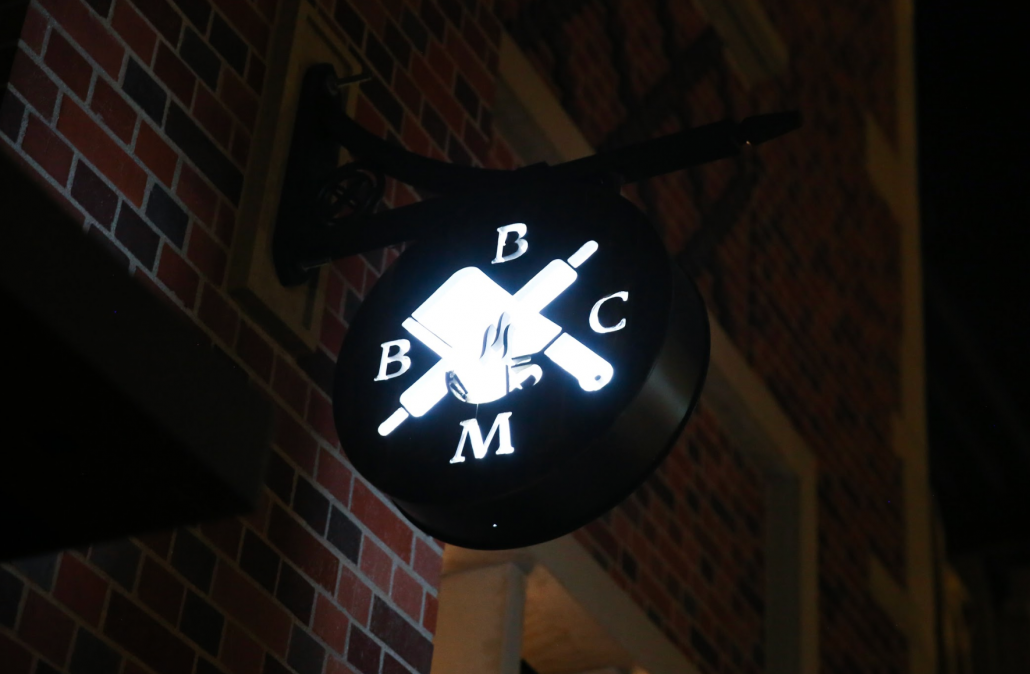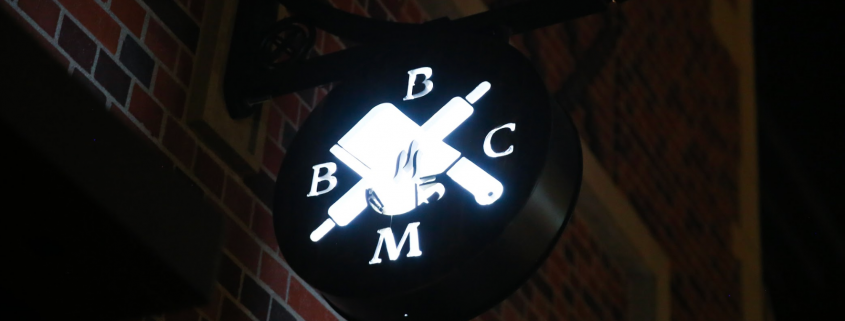BBCM closes in wake of USC Village restaurant lawsuits

(Sarah Ko | Daily Trojan)
Amid an ongoing lawsuit filed against USC Aug. 15, restaurant The Butcher, The Baker, The Cappuccino Maker has closed its doors in USC Village, a University spokesperson confirmed Wednesday.
The closure comes after BBCM and Rance’s Chicago Pizza, another restaurant at USC Village, filed a lawsuit claiming the University’s Real Estate and Asset Management team “deceived and defrauded tenants” to pay above-market rent prices for space.
The two restaurants, which held storefronts in USC Village since its opening in 2017, are suing the University for promissory fraud, misrepresentation and breach of contract.
“The University believes the allegations that Rance’s and BBCM have made in their lawsuit are inaccurate, and we will vigorously defend against them in court,” USC wrote in a statement to the Daily Trojan.
Store owners allege USC informed tenants that students would be allowed to use dining dollars to pay for meals and claimed the University failed to disclose the establishment of the USC Village Dining Hall.
“The commercial tenants at the Village attempted numerous times to organize and address the giant contrast between what was represented and what was delivered,” the lawsuit read. “At every attempt, the tenants were met with threats of default and legal action by the REAM team.”
USC denied these claims.
In a separate statement to the Daily Trojan Wednesday, USC confirmed BBCM’s closing and said it expects restaurants and retailers in USC Village to change over time.
“It is common for retailers and restaurants to make business-based decisions about when to leave a location,” the statement read. “Ongoing change is expected as USC Village continues to partner with retailers and restaurants to provide the best mix of services for the University and the community.”
The University also wrote that it recently filed a separate court action against Rance’s for allegedly falling behind on its rent payments in the last several months. Rance’s did not immediately respond to the Daily Trojan’s request for comment.
Nathan Meyer, an attorney representing both restaurants, said his clients stand behind their allegations in the lawsuit and look forward to seeing the outcome once the case is taken to court.
“At this time, it is our hope that we can arrive at a fair and amicable resolution between USC and our clients,” Meyer said in a statement to the Daily Trojan.
According to the lawsuit, both restaurants were told by a REAM executive that students could use dining dollars as part of USC meal plans at restaurants in USC Village. BBCM said in the suit that the REAM executive framed the dining dollars as a selling point because it would bring a “significant boost” in revenue and used Seeds, another storefront at USC that accepts dining dollars, as an example.
Five months before Rance’s opened in June 2017, co-owner Aaron Tofani said he called the executive to discuss integrating a payment system to use dining dollars, but he said the system was still being set up, the lawsuit read. Tofani alleged he received a service proposal to implement Tapingo, a campus service that allows students to pay with dining dollars, at the restaurant.
The lawsuit also states Rance’s finished the Tapingo deal in November 2017 -— five weeks before the store’s opening — but the restaurant was then informed that USC doesn’t allow Tapingo at privately-owned businesses. However, Rance’s still has a contract with Tapingo “in hopes of one day being added to the [USC meal plans], but has experienced minimal sales in the meantime just like other restaurants at the Village which have partnered with Tapingo,” the lawsuit read.
In November 2017, the Daily Trojan editorial board also argued that the University should allow USC Village restaurants to accept dining dollars at their locations.
“It feels like a contradiction, in the simplest of ways, that students still cannot use the currency designated as an inherent part of living and working on campus to purchase food from establishments in a new part of USC now embraced as part of its campus,” the editorial read. “It’s also an example of a concerning trend of shortsightedness University administrators have followed in their planning and envisioning of what USC Village was meant to be for their students and surrounding community.”
Rance’s and other USC Village tenants have continued asking for permission to accept dining dollars in their restaurants but have been denied each time, the suit said.
Rance’s and BBCM also claim that they based revenue predictions on blueprints they were given of USC Village, which they said showed less restaurant competition and didn’t include plans for a new dining hall.
Both restaurants added that they would not have opened locations in USC Village had they known the dining hall would be built there and said they’ve “suffered massive losses on a continuous basis” because of the competition from it and other restaurants. Rance’s and BBCM also said USC promised USC Village would hold farmer’s markets, tailgates and other events to draw traffic from the local community.
When USC Village tenants wrote draft letters in May 2018 and early 2019 to raise these issues, the REAM executive “threatened” Rance’s and other tenants against signing the letter, the lawsuit said. Since then, the lawsuit said “tenants fear retaliation from REAM and have thus been very reluctant to work together or be perceived as working together.”
The lawsuit alleges tenants were met with a similar response when they brought up above-market rates that have increased without notice, the lawsuit read.

